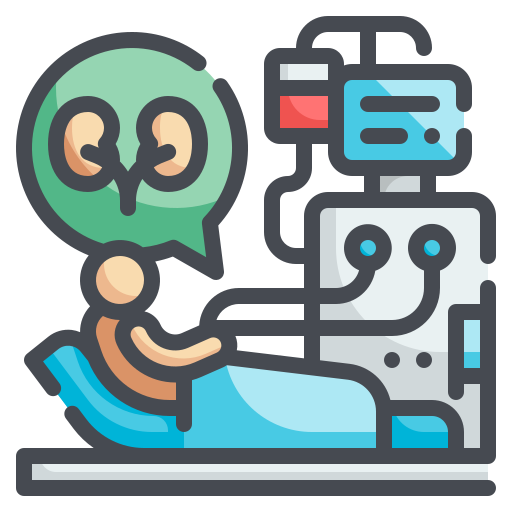24*7 Dialysis
“24*7 Dialysis” refers to dialysis services that operate 24 hours a day, seven days a week. Dialysis is a medical procedure that performs the functions of the kidneys in individuals with kidney failure or impaired kidney function. 24/7 dialysis services are crucial for providing continuous renal replacement therapy, especially for patients with end-stage renal disease (ESRD). Here are key aspects of 24/7 dialysis services:

- Continuous Renal Replacement Therapy (CRRT): 24/7 dialysis services offer continuous renal replacement therapy, ensuring that patients with kidney failure receive ongoing and uninterrupted treatment.
- Emergency Dialysis: For individuals facing acute kidney injury or emergencies requiring immediate dialysis, 24/7 services are essential to provide timely and life-saving treatment.
- Scheduled Dialysis Sessions: Patients on chronic dialysis often require regular, scheduled sessions to manage their kidney function. 24/7 services accommodate varying schedules and time preferences for patients.
- Home Dialysis Support: Some 24/7 dialysis services extend support for home dialysis, allowing patients to perform dialysis in the comfort of their homes while having access to assistance and medical oversight around the clock.
- Hemodialysis and Peritoneal Dialysis: 24/7 dialysis services may include both hemodialysis, where blood is filtered outside the body, and peritoneal dialysis, where the peritoneal membrane inside the abdomen is used as a filter.
- Qualified Dialysis Staff: These services are staffed with qualified healthcare professionals, including nephrologists, dialysis nurses, and technicians who are trained to manage the dialysis process.
- Management of Complications: Dialysis services operating 24/7 are equipped to manage complications that may arise during dialysis, ensuring patient safety and well-being.
- Patient Education: Providing continuous education to patients about self-care, dietary restrictions, and lifestyle adjustments is an integral part of 24/7 dialysis services.
- Coordination with Hospitals: 24/7 dialysis services often work in coordination with hospitals and other healthcare facilities to provide seamless care for patients requiring dialysis.
- Remote Monitoring: Advanced technology may be utilized for remote monitoring of patients undergoing dialysis, allowing healthcare providers to track vital parameters and intervene if necessary.
